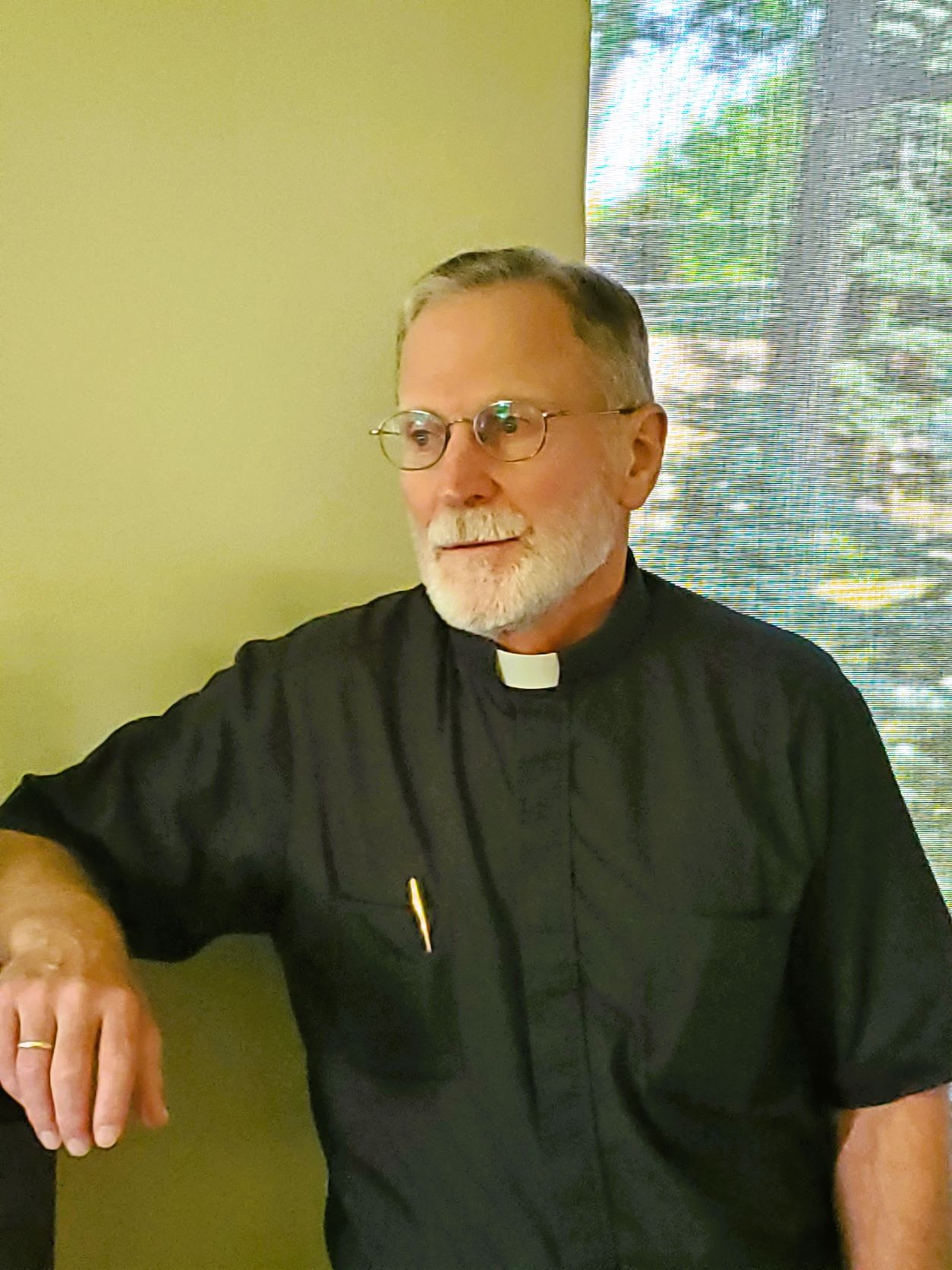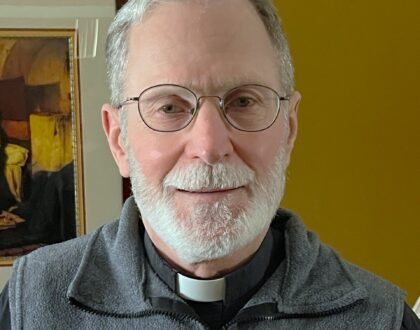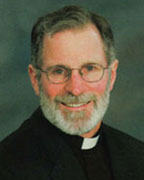Homily, February 12, 2023

From The Pastor
In the gospel of St. Matthew, Jesus is presented as the new Moses. Jesus is the Great Teacher of the new covenant with God. In the Old Testament, Moses was the great Prophet of God who led the enslaved Israelites out of Egypt and into the Promised Land. Moses was the mediator between God and the people. It was to Moses that God dictated the Ten Commandments for the formation and right order of those who desired to follow the Divine way.
For three weeks now, we have been reading from the Sermon on the Mount as Jesus teaches both the disciples and a large crowd. First, we heard the Beatitudes followed by the teaching on salt and light. Today, Jesus widens the understanding and meaning of the Ten Commandments. As a Jew, Jesus honors the meaning and intention of the Jewish law. Jesus makes it clear that he will not abolish the Law but will bring it to fulfillment. Law alone is not the way of God.
The first reading gives us good insight into the intention of Divine law, as well as the wisdom of free will in making mature decisions from the heart. Human beings need laws and boundaries to find meaningful and righteous direction in life. Consider the value and necessity of raising children. Good parenting not only provides children a secure home with appropriate food, shelter, clothing, and consistent love, but also moral values, manners, and a foundation of faith in God and the gift of Christ. Without such formation, children can feel less secure as they seek to form an identity and move into a turbulent and amoral society.
In 586 BC., Babylon destroyed the Jewish Temple in Jerusalem and led the people into exile. The Jewish exiles had to wrestle with how to remain faithful to their covenant with God with no Temple or ritual sacrifices. Many fell away and adopted the practices and gods of Babylon. Others clung to and studied the remains of the Torah. This is the setting of the first reading. The people are forced to make a decision. Will they choose the ways of God or choose their own way. One leads to life, the other to spiritual death.
The wisdom of God is the gift of free will. Each of us must make a choice. Will we choose to follow the commands of God or forge our own path in life? In the absence of a Temple and the loss of ritual sacrifice, those who chose God and studied the Torah came to realize God in their hearts. From within, they came to know and honor God with love. They were able to speak of God from their hearts and not only from the practice of ritual sacrifice and religious obedience of laws.
Consider the wisdom of free will. God knows free will is the only way to love. God has no desire to force our love through fearful obedience or shameful punishment. To know and to love God must be an action and decision of the heart. Jesus was not a sin-based person. He was not looking for sinners and lawbreakers to force obedience to his message. Nor was Jesus indifferent about sin. He knew the separation and disorder it caused. Jesus was most interested in persons who needed love, healing, forgiveness, and acceptance. Hearts open and able to interact with love will seek God in the desire of righteous living.
The fulfilment of the Law is only realized in the love of the Holy Spirit. Law alone will never make it in heaven. The most faithful law keepers may be found wanting in the ways of love. This was the great tension for the Scribes and Pharisees. They used the Law for their personal justification as well as power and control over others. Love in the heart did not seem to fit into the picture.
Is it enough to say, ‘I’ve never killed anyone,’ if the heart is filled with anger, hatred, or resentment? The heart is bound by what it clings to. This is the point Jesus is making. If in anger we cast condemning judgement on another, are we not killing their good name or reputation through the darkness of our own heart? In such emotion, are we not ‘breaking’ the love we presume to have in own hearts? This dynamic is the same for each of the Commandments addressed today. What is the will and intention of the heart in relationship to God?
The example of the first reading is effective for us today. Many have drifted away from Christianity for one reason or another. Social, cultural, moral, and civil practices of society have changed. People prefer to determine their own truth according to the personal right of free will. The formation of moral conscience and the integrity of personal character is often surrendered to our increasingly secular culture. This does not bode well for personal happiness and maturity of society. Social peace and integrity can only grow from hearts close to God.
Faith is a relationship of trust in the love of God revealed in the Lord Jesus. Faith is also a discipline. It takes time, effort, and courage to choose the ways of God made visible in Jesus. God knows we are sinners. It is not a secret. We are weak. We fail and fall down. The faithful get up and keep going. Sin is forgivable. Love heals sin. Jesus is Divine love given for you. For those who choose to be their own highest truth, the road will be long and lonely.
Father John Esper
Recent Sermons

Homily, March 30, 2025
March 27, 2025

Homily, March 23, 2025
March 20, 2025

Homily, March 16, 2025
March 11, 2025

